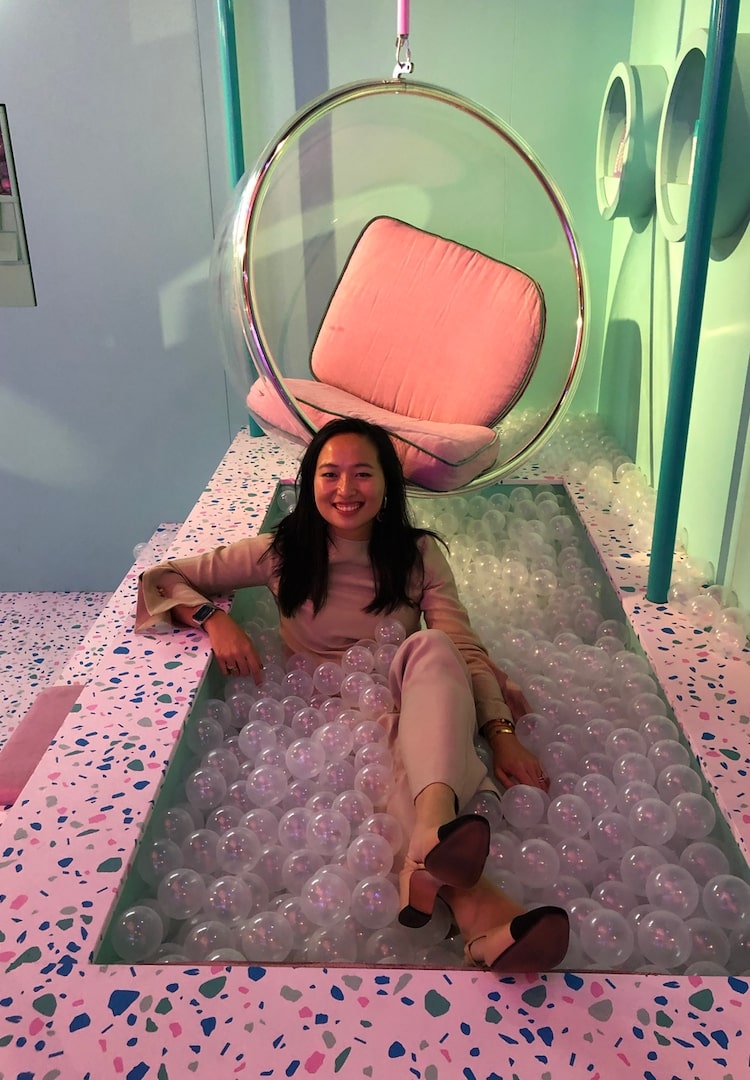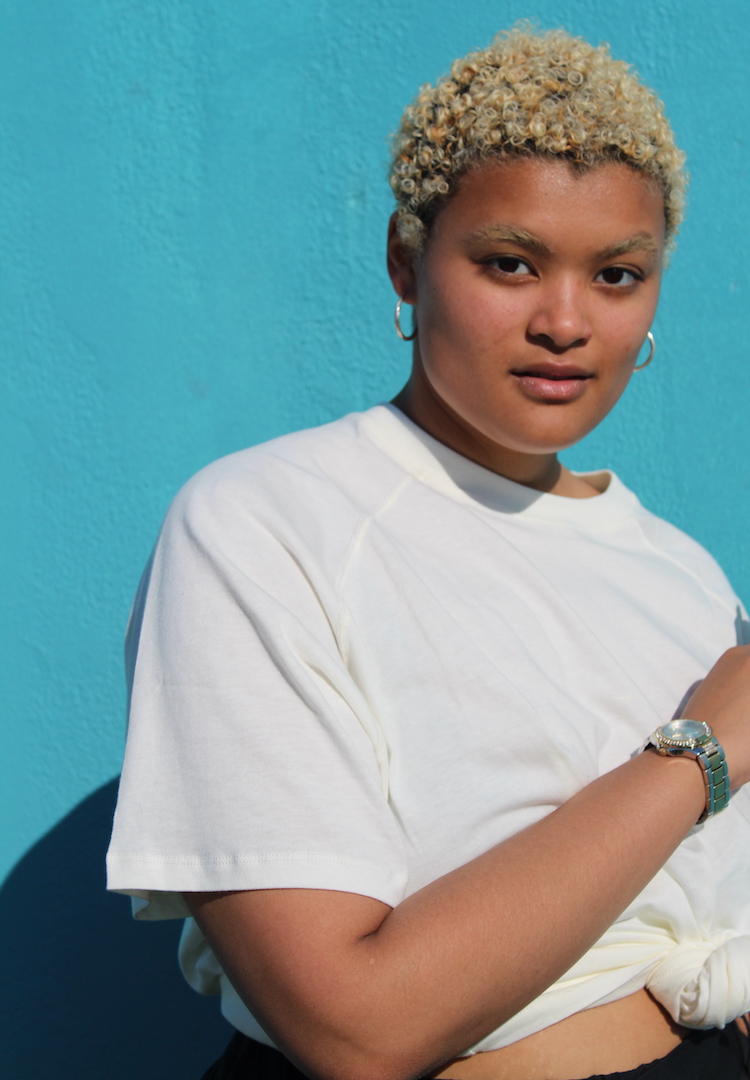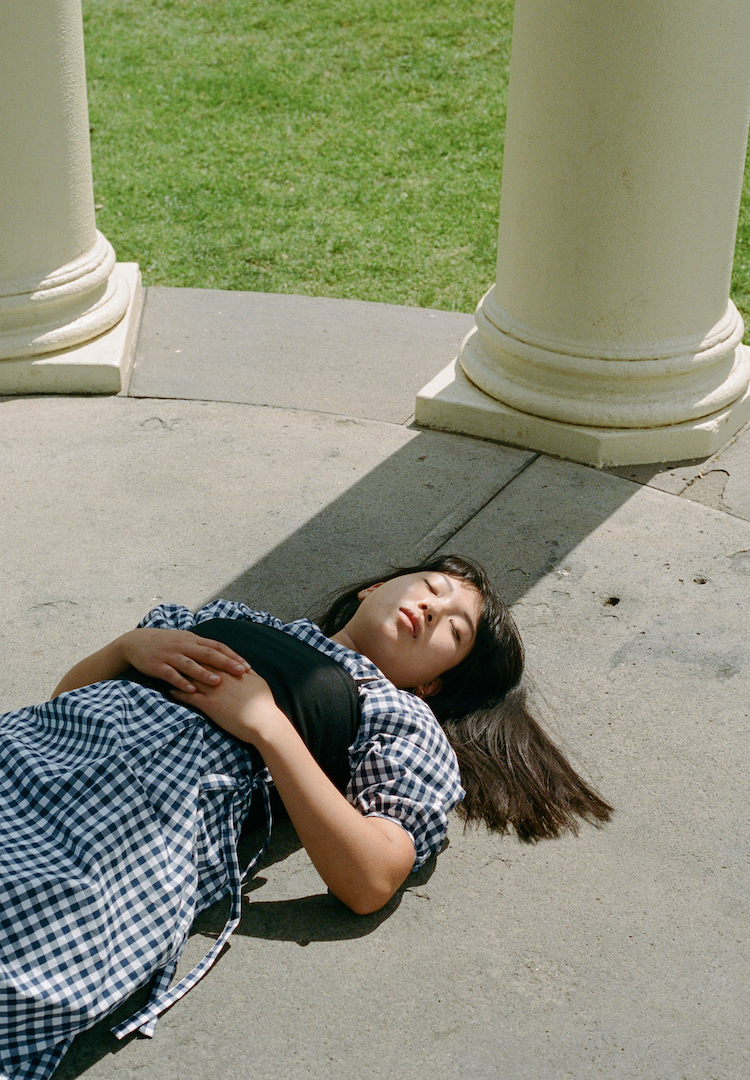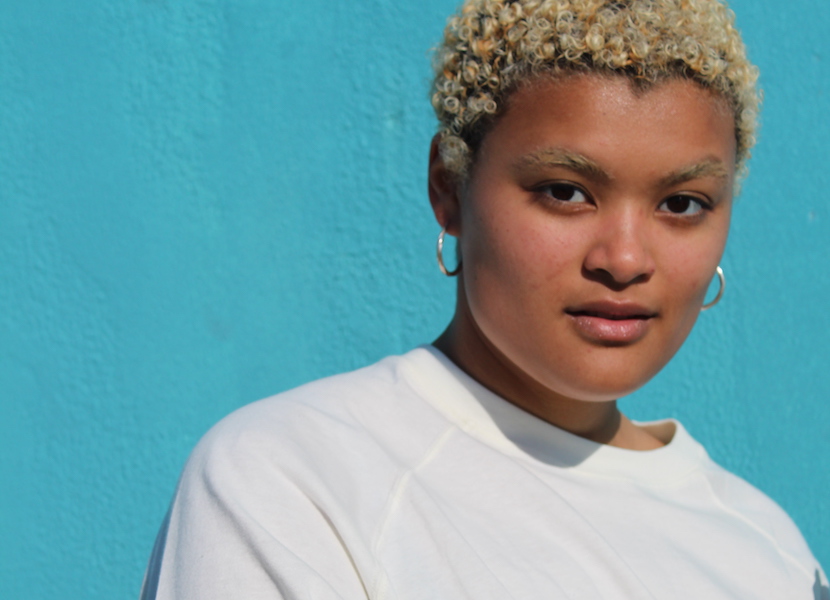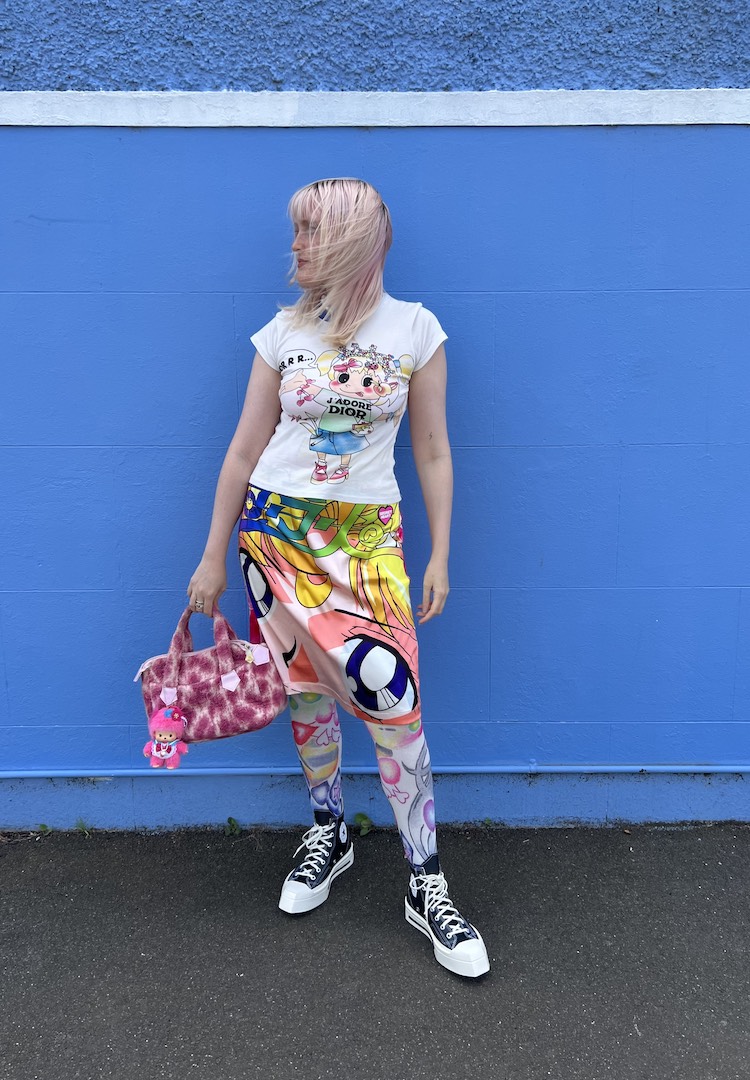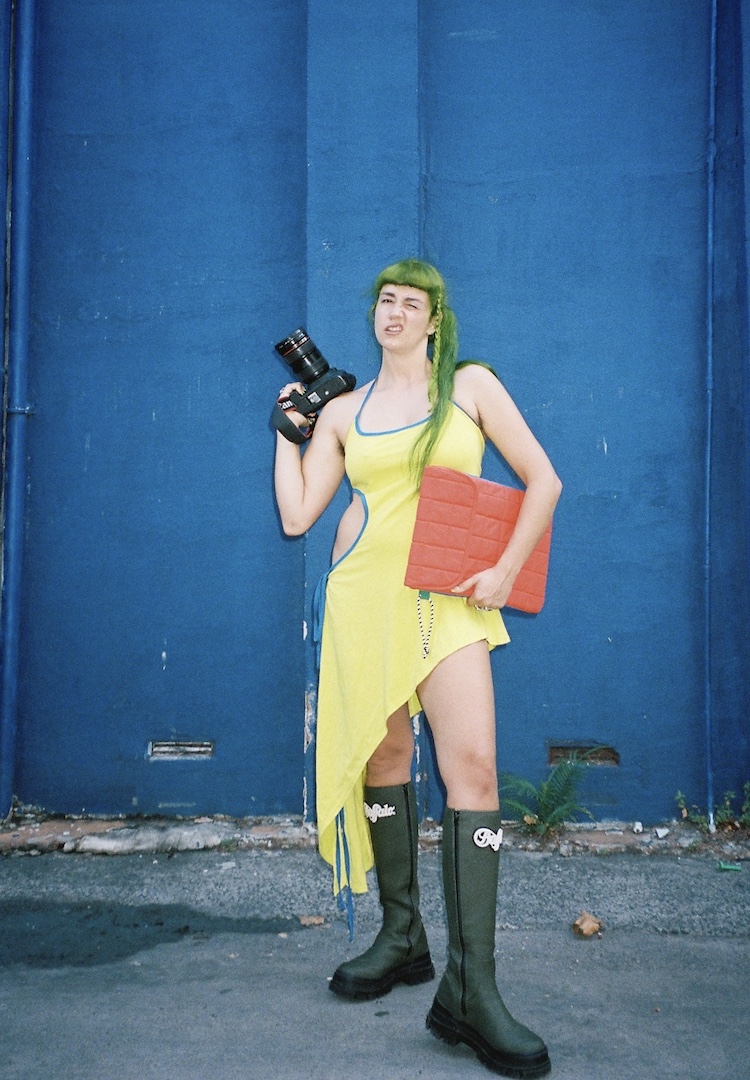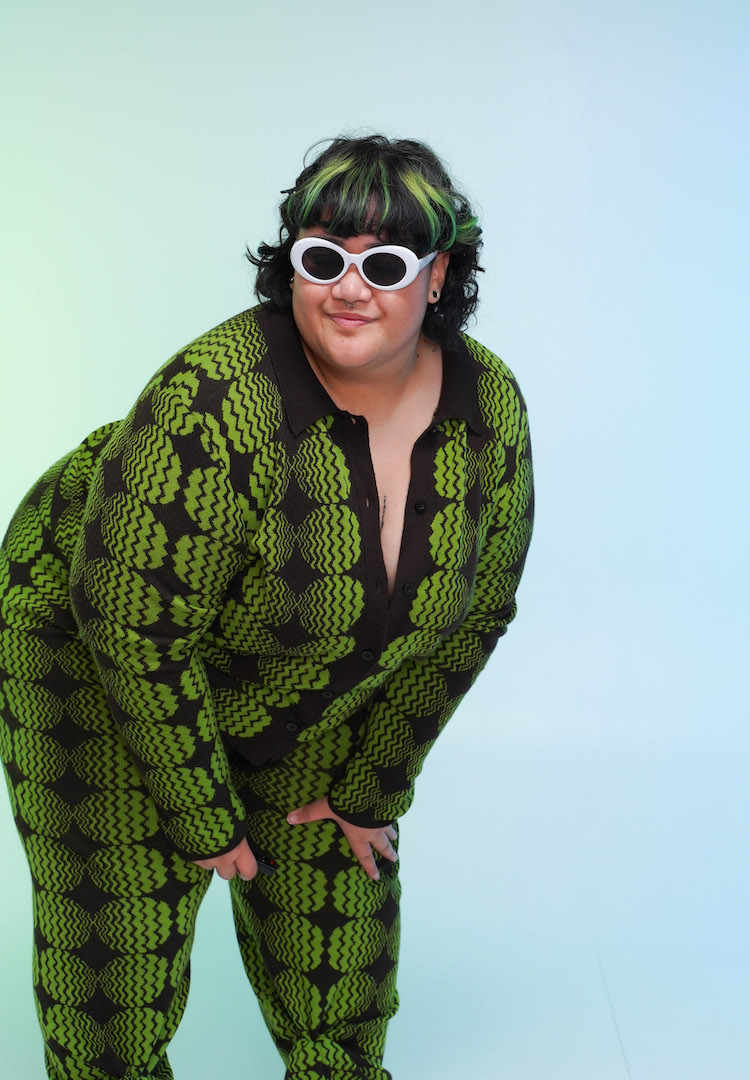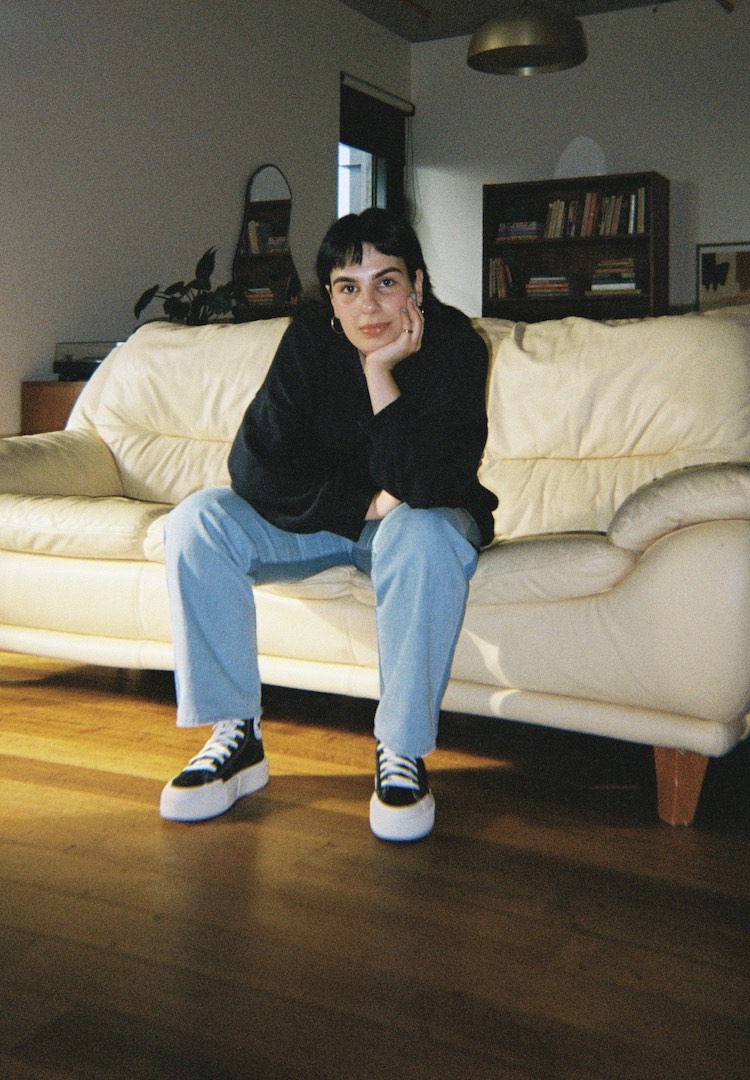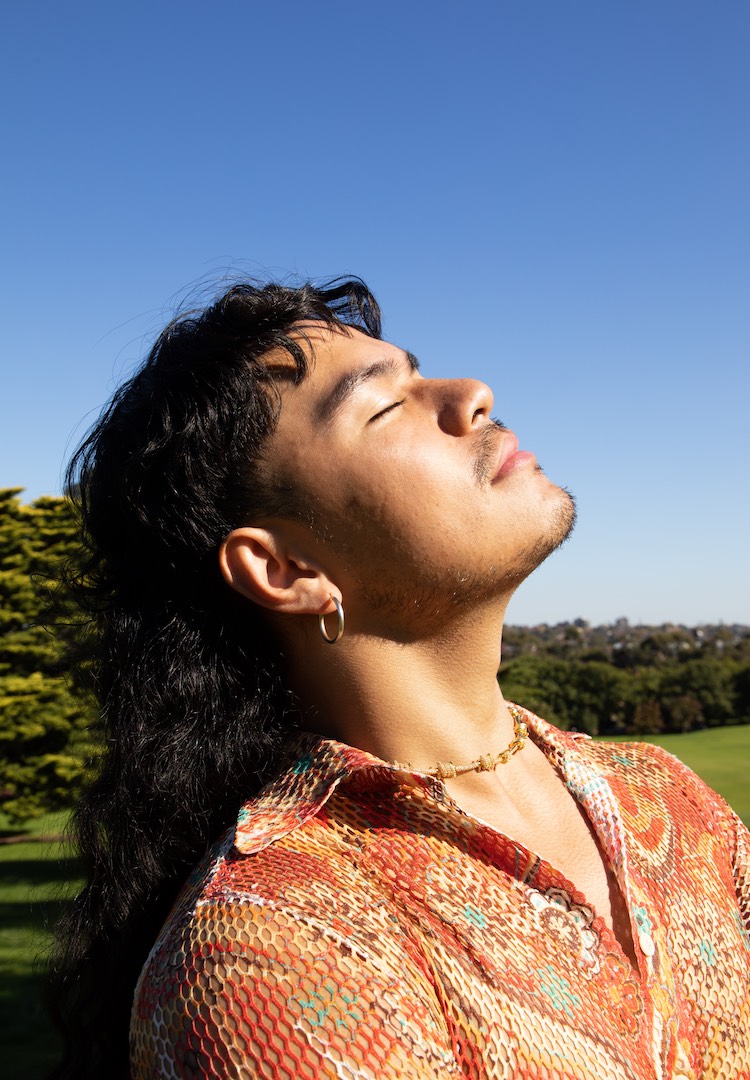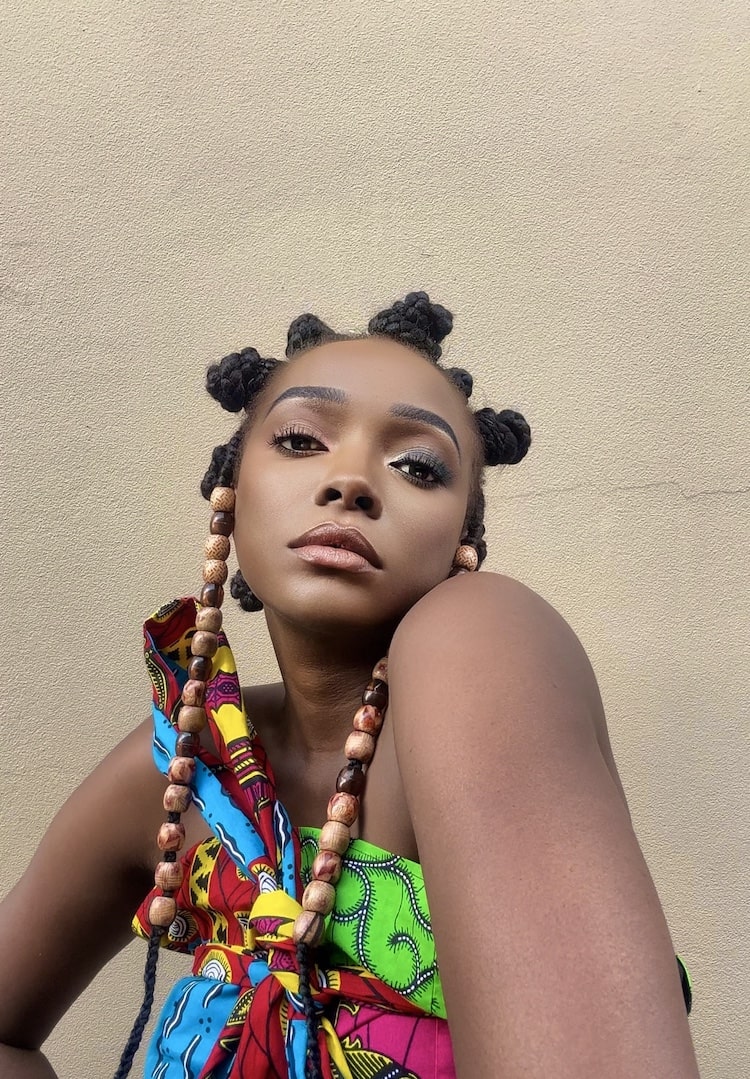As someone who doesn’t particularly fit the ‘Aussie’ social ideal, others feel the need to label me
WORDS BY MILO HARTILL
“I can vividly remember someone in my class telling me to wash my skin, as it looked ‘dirty’.”
This week, Converse launched Shapes, a collection of apparel that is genderless, seasonless and size-less. Shapes allows the consumer to choose what they want to wear and how they want to wear it, without being bound to the labels traditionally prescribed by the fashion industry. To celebrate the release, we asked a series of FJ readers to open up about the labels assigned to them by society, and how they’ve pushed past these. Here, model Milo Hartill discusses the labels she’s been dealt all her life, and how she’s come to embrace these as a way to empower others.
As a Black, queer, plus-size woman, I have always been relatively aware of the labels assigned to me. As someone who doesn’t particularly fit the ‘Aussie’ social ideal, I’m well aware that others feel the need to label me. I’m also aware of the stereotypes and assumptions that come with these labels, too.
In fact, from around four years old, I can remember starting to become aware.
On one of my first days in pre-primary, I can vividly remember someone in my class telling me to wash my skin, as it looked “dirty”. They said they didn’t want to be my friend because I was Black, and that their mummy had said they should “stay away from Black people because they are dumb”.
A few years later, I was out with my mum when someone dropped their fork in a cafe. I, being the type of kid I was, went to pick it up for them. When I handed it back, with a smile on my face, the person patted me on the head and told me my kind was good at this type of manual labour. My mum very angrily grabbed my hand and we walked straight to the car, but it took me a few years to realise how truly cooked that comment was.
“Black”, and the associations people make with it, was one of the first labels I recognised people used to categorise me. My relationship with the label has been turbulent, to say the least. Black = dangerous, lazy, ugly, feared. This was my initial understanding of the label. As a result, I felt very restricted and embarrassed by this label, and this part of me.
The next label I began to notice making repeat appearances in my bubble was “fat”, alongside other synonyms making comment on the size of my body. This was a label I found pretty hard to grapple with and I have only come to happily embrace it in the last few years.
“Queer” and “woman” snuck up on me as labels only in my later years; they had special agents “fat” and “Black” distract me when I was younger. I didn’t realise these facets of my identity (and their effects on me as labels), until my mid-to-late teens. I came to realise I was bisexual, and also came out in 2017, which brought a whole new set of labels and assumptions.
Alongside this, I was very confused with how I needed to label myself within my gender identity and femininity. I knew I was cis-gender with pronouns she and her, but also saw that I didn’t fit the social ideal for women. That is, what was portrayed in the media as ‘the perfect example of an Aussie girl’ while I was growing up. I wasn’t white, blonde, thin, straight or quiet, which led to some gender dysphoria for me – not knowing what labels to adopt at all, or where I fit.
Unpacking my labels
In coming to realise all these labels and the effects they were having on me, I wanted to unpack what they meant to me and how I could use them to empower myself, rather than allowing them to hinder me. I started analysing the labels I would give to other people, and unlearning the hidden biases within myself. I needed to evaluate the pros and cons of labels before embracing, using or canning them – both for myself and others.
I wanted to feel happy being labelled in these ways – Black, queer, fat, woman – but with the traditional meanings dictated by society, I felt pretty trapped by a lot of them. I bought into the many negative connotations historically attached to these labels.
I needed to shift this pattern, so I began to ask myself: ‘What do I like about my labels?’
Remember, labels that have been made to seem negative don’t have to be. You can reinvent and reclaim a label by changing how you think about it. A lot of the actions I have taken in learning to love myself have had to do with shifting my viewpoint on labels. As much as they have the potential to squash us, we can charge them to empower us.
I was surprised when I found myself entering the fashion industry. I had never thought about it as a career path. Given the lack of representation when I was younger (in the noughties you didn’t really see many fat black queer models in the public eye) I had labelled myself as not model material.
Funnily enough, however, I’ve found that all the labels I had thought would be a setback to me in this industry have instead been of benefit to me. I have been able to use these labels, and my voice, to start movements for myself and other people like me.
However I hope the industry shifts towards me being just a model – not curve or plus size, but just a model. I am just as capable as thinner girls to do the things that aren’t branded as ‘plus size’ and I think we should be put up for those jobs, and be the representation needed for young girls growing up.
I am queer, Black, fat and a model damn it, and don’t you forget it!
Reframing is possible, but it’s work
For sure, I can see the importance of some labels in everyday life, some tasks would be pretty dang hard to complete without labels. Names, I think, are an important label. How would anyone know anyone without a name? If I didn’t label food items, it would be a pretty rude awakening to find a spoon of salt in my tea instead of sugar! I also think it’s a part of human nature to want to label things, in order to understand them better and make this vast (and oftentimes nonsensical) world make more sense.
Sometimes, the labels we assign to people can be useful, too. For example, using labels to find like-minded people with similar opinions or experiences to ours. Other times, however, given how some labels are used and weaponised, they can cause more harm than good.
Advocating to normalise aspects of my labels has helped me to overcome the weight of certain labels. I’ve done this through discussing inclusive fashion, and trying to spark conversations around these topics with my friends, family and on my platform.
Similarly, diversifying my social media feeds helped me see the beauty and intricacies of Black and fat bodies, see these qualities in myself, and ultimately love these labels, rather than trying to hide or deny them. Entering queer and intersectional feminist spaces helped me celebrate these labels myself and with others. We don’t just have to be a stereotype, or the punchline of a joke, we are amazing!
To reframe your labels as positive, when you’ve lived an entire lifetime being told they are negative, is challenging work. So make sure to also remind yourself of your universally positive labels (a lot of these aren’t visible, lie your brains or kindness!).
Oftentimes, people don’t want to remind you about the positive labels, or the positives of them. Surround yourself with people who remind you of the positives of your labels, and who share labels with you that inspire you.
Take ownership of, and pride in, your labels (or in throwing them in the bin and doing what you want!). Your labels don’t define you.

